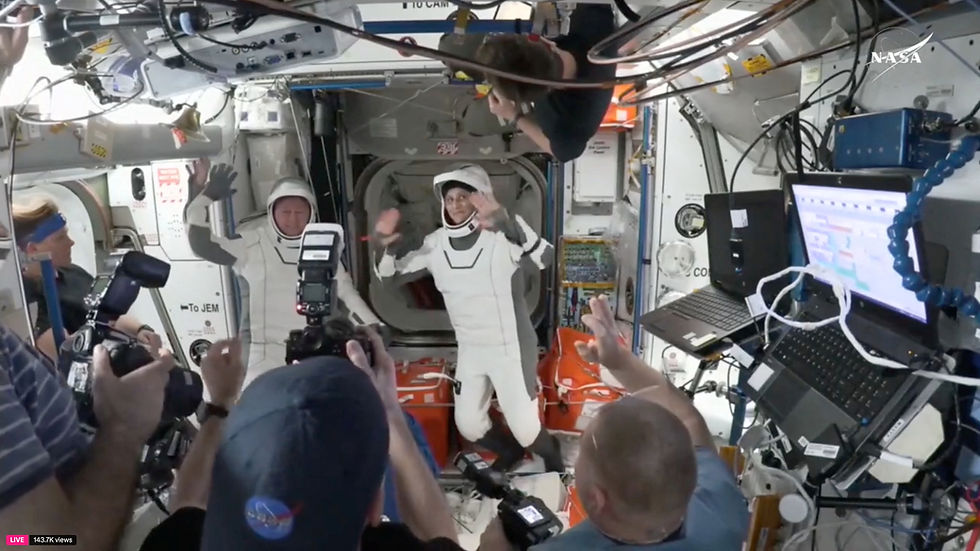Putin's nuclear talk shouldn't stop NATO backing Ukraine, Stoltenberg says
- News Agency
- Oct 1, 2024
- 2 min read

BRUSSELS - NATO members should not be deterred from giving more military aid to Ukraine by Vladimir Putin's "reckless Russian nuclear rhetoric", outgoing NATO boss Jens Stoltenberg told Reuters in an interview on Monday.
Stoltenberg was reacting to a declaration from Putin last week that Russia could use nuclear weapons if it was struck with conventional missiles, and that Moscow would consider any assault on it supported by a nuclear power to be a joint attack.
Putin's warning came as the United States and its allies deliberate over whether to let Ukraine fire conventional Western missiles deep into Russia. Kyiv says it wants permission to hit targets that are part of Russia's war effort.
"What we have seen is a pattern of reckless Russian nuclear rhetoric and messaging, and this fits into that pattern," Stoltenberg, who hands over the NATO leadership to Dutch ex-prime minister Mark Rutte on Tuesday after a decade in charge.
"Every time we have stepped up our support with new types of weapons - battle tanks, long-range fires or F-16s - the Russians have tried to prevent us," Stoltenberg told Reuters at NATO headquarters on the outskirts of Brussels.
"They have not succeeded and also this latest example should not prevent NATO allies from supporting Ukraine."
He said NATO had not detected any change in Russia's nuclear posture "that requires any changes from our side".
'NO RISK-FREE OPTIONS'
Stoltenberg, a former prime minister of Norway, said the biggest risk to NATO would be if Putin wins in Ukraine.
"Then the message will be that when he used military force, but also when he threatened NATO allies, then he gets what he wants and that will make us all more vulnerable," he said.
"In a war, there are no risk-free options."
The U.S. administration has so far been reluctant to give Ukraine permission to strike deep inside Russia with weapons such as long-range ATACMS missiles due to fears of higher tensions with Moscow and potential retaliation.
Some Western officials have also questioned how effective such strikes would be in changing the balance of the war.
Stoltenberg said there was "no silver bullet" that would change everything on the battlefield. But deep strikes inside Russia could make a difference as part of the broader Western effort to help Ukraine repel Russia's invasion, he said.
Stoltenberg also said any negotiated end to the war would have to include security guarantees for Ukraine from Western powers, above all the United States.
Otherwise, he said, Russia would not respect any lines drawn on a map that it was not meant to go beyond.
"When some kind of line is agreed - be it the internationally recognised border or another ceasefire line, we have to be absolutely sure that the war ends there," he said.
"So far we have seen Russia attacking, waiting and then attacking again," he said, citing previous deals meant to end the conflict between Russia and Ukraine that began in 2014.
"I don't think we can change President Putin's mind (about Ukraine) but I think we can change his calculus by demonstrating that the cost of continuing the war is so high that it's better for him to sit down and accept Ukraine as a sovereign independent nation."
-Reuters




.png)








Comments